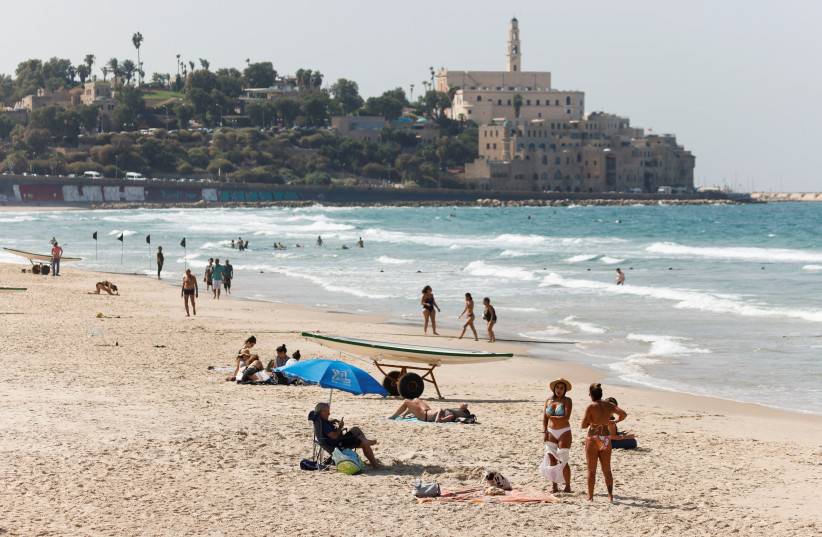An intense heat wave reached its peak in Israel on Saturday with spikes in temperatures throughout the day.
While Tel Aviv saw a high of 33°C (91°F) and Jerusalem got up to 35°C (95°F), some southern areas experienced temperatures as high as 41°C (106°F).
Not for long
The heat won’t last too long, however. Sunday is predicted to be partly cloudy with a significant drop in temperature and a rise in humidity.
Southern Israel and the eastern valleys will still have high temperatures, while a chance of rain is predicted for northern and central Israel on Sunday night.
Temperatures will drop further on Monday to below seasonal averages, with partly cloudy skies and a continued chance of light rain in northern and central Israel in the afternoon.
Tuesday will bring slightly higher temperatures and a chance of light drizzle in the morning.
This is just the beginning
Although Israel is getting over the hump of the season’s first heat wave, scientists are warning that more is coming.
A recent Tel Aviv University study funded by the Environmental Protection Ministry found a significant increase in deaths in Israel during heat waves.
"All government bodies and local authorities must prepare for the heatwaves to reduce premature mortality, suffering and medical expenditures."
Environmental Protection Minister Tamar Zandberg
Environmental Protection Ministry Chief Scientist Prof. Noga Kronfeld-Schor said, “The ministry is working within the framework of the climate-change assessment program to prepare for extreme weather and the expected increase in its intensity, frequency and duration due to climate change.”
Judy Siegel-Itzkovich contributed to this report.

